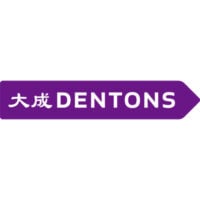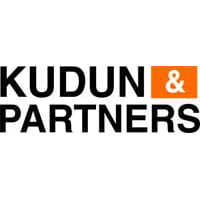
China 2019

Vice president and head of legal affairs and sourcing, North East Asia | Ericsson (China) Communications





Per Hoffman
Vice president and head of legal affairs and sourcing, North East Asia | Ericsson (China) Communications
Vice president and head of global customer operations legal affairs | The Ericsson Group
Earlier this year Ericsson agreed to acquire the antenna business from German company Kathrein. In China, Ericsson is acquiring manufacturing assets and taking over personnel in Shenzhen. I have together with my Chinese team supported the transaction and we expect the transaction to close during the fourth quarter this year. Being part of Ericsson China’s executive management, I will also assume the role of chairman of the board and legal representative for the business. Ericsson is engaged in various litigations in China, mainly related to intellectual property rights.
To ensure my team of lawyers are working closely with each customer account team, I have organised legal support as follows: We have a dedicated contact person for each customer account, and we provide tailor made trainings to the customer accounts to fit each account’s needs. We also continuously conduct trainings for our legal counsels.
Ericsson established a local presence in China over 25 years ago and it is our second largest market world-wide. We have significant global resources for both R&D and manufacturing in China, in addition to a strong sales force, with more than 13,000 employees. Against that background, we are obviously closely following the geopolitical situation, especially China-US trade tensions. As our Chinese customers are preparing to start rolling out new 5G networks in China, there is also a focus on various issues arising, including cyber security and data privacy.
For me it is important when selecting a law firm, that the firm knows and understands the local market. Very often we need to understand how various new legal and regulatory changes will impact our company. We then need a law firm that either has significant experience from that particular area or has employees with previous working experience from relevant authorities. Since we are also working closely with a limited number of law firms, rather than many, we are also seeking firms that we have an efficient and well-functioning relationship with.
The volatile geopolitical situation is something that we are following closely. In this, there is obviously a strong focus on the telecommunication sector. For instance, I believe very few anticipated the US actions against our Chinese competitors Huawei and ZTE. These actions obviously impacted all companies within the telecommunication industry. Another related area is intellectual property rights, both how these rights are protected and enforced. Within Ericsson, we focus on delivering our products to the Chinese market, in full compliance with laws and regulations, without engaging in political developments.
We are currently addressing how automation and artificial intelligence can be used by the legal function. I believe this will impact ways of working for in-house lawyers in the coming years. In-house lawyers will also have to become much more tech-savvy, in order to understand how to use and understand new technology. The current geopolitical situation also shows that in-house legal functions will have to understand not only the pure legal context, but also the broader political context, when giving legal advice.
For Ericsson, the focus will be 5G. We will start rolling out our 5G products in volume to our Chinese customers in the coming 12 months. This is very important both for China and Ericsson. The new 5G technology will bring a lot of opportunities for enterprises in China, but will also be used by people at large.
FOCUS ON… The successful in-house legal counsel is a tech-savvy lawyer who both enables and guards the business.
The role of in-house legal counsel is constantly developing, both in how in-house legal counsels work and what they work with. With respect to how in-house legal counsel work, we have seen a rapid development in the last 25 years, from working with mark-up documents being sent late at night by telefax to the counter party 25 years ago, to today’s reality where there are a constant sending of emails and documents being uploaded in clouds for storage. Now artificial intelligence and automation is also knocking on the door and this will yet again change the way in-house counsel work. Knowledge will be much faster moving and big data will play
an important role. The successful in-house legal counsel will have to also master technology in the future. It will not be enough being a brilliant lawyer. The role of in-house legal counsel has developed to encompass both the role of being an enabler for the business and a guardian of the business. The enabling in-house lawyer is fully updated on various business models and understands the consequences of a specific business model for the company’s balance sheet. The enabling lawyer can make risk assessments that enables the business to be successful. But the same in-house lawyer is also making the same risk assessment as a guardian of the company.
Especially in the last couple of years, when compliance is high on the agenda for both regulators and stakeholders at large, the role as guardian has become more important for in-house legal counsel. This trend will not slow down, but rather the opposite. This dual role, being both an enabler and a guardian, is challenging for any in-house lawyer, but it is what we require from successful in-house legal counsel today.